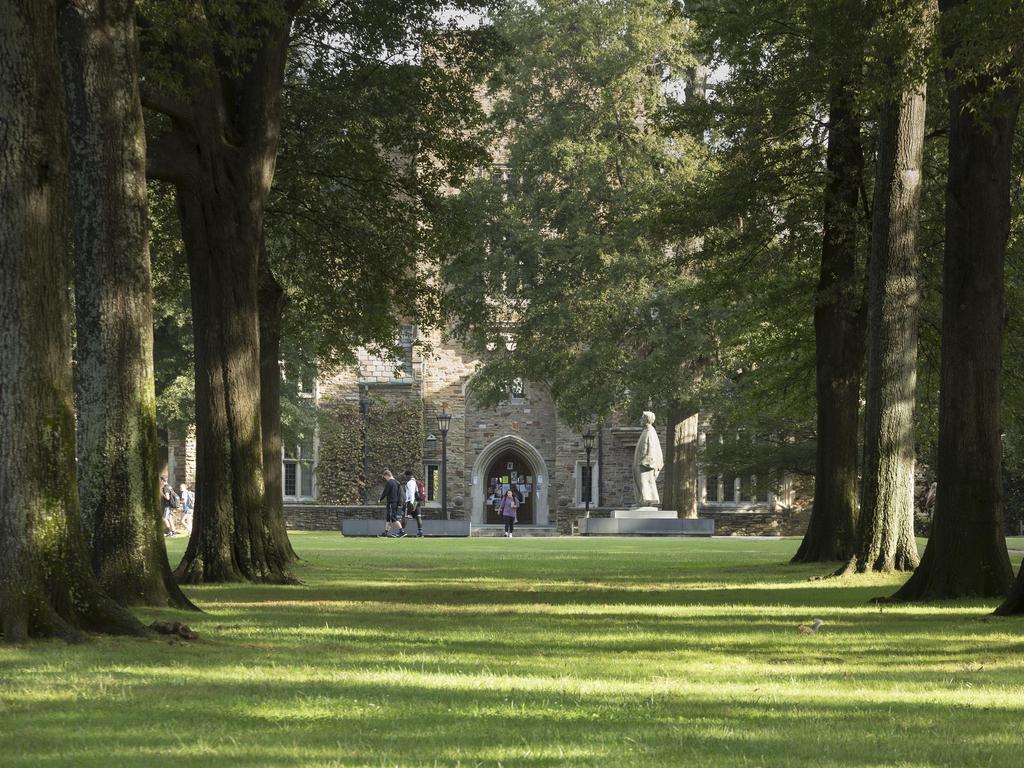Rhodes College has become a member of the Association for the Advancement of Sustainability in Higher Education (AASHE), an organization that empowers faculty, administrators, staff, and students in making strides for a more sustainable future.
AASHE defines sustainability in an inclusive way that encompasses human and ecological health, social justice, secure livelihoods, and a better world for all generations. Membership covers every individual at an institution so that the entire campus can take advantage of member benefits, including toolkits and collections with nearly 15,000 resources on topics from academics to operations to investment; professional development courses; annual conference sessions; webinars and virtual workshops; and a network of peer support and knowledge sharing.
“AASHE counts on the support of progressive institutions such as Rhodes College to fulfill its mission to inspire and catalyze higher education to lead the global sustainability transformation,” says AASHE Executive Director Meghan Fay Zahniser.
“We are proud to join other higher education institutions in helping drive innovation and promote the well-being of humankind,” says Rhodes Interim President Carroll Stevens. “Membership in AASHE aligns with the college’s strategic objective to ensure students are prepared to address the world’s most pressing problems while at the same time fostering equitable and prosperous communities.”
Positive work by Rhodes’ existing programs, organizations, curriculum, and community partners are highlighted on a new webpage on the college site.
Groups on campus involved in sustainability efforts include the Rhodes Sustainability Working Group, Rhodes Beekeeping Club, Rhodes Sustainability Coalition, Rhodes Chapter of the Botanical Society of America, Rhodes Tree Campus Committee, and Rhodes Food Recovery Network.
“In early Spring 2020, a group of faculty, staff, and students finalized a report that outlined the four facets of sustainability (wellbeing, the environment, society, and the economy), highlighted sustainability efforts on campus, and provided recommendations for the future,” says Dr. Sarah Boyle, chair of the Environmental Studies and Sciences Program at Rhodes, and chair of the Rhodes Sustainability Working Group. “It is exciting to see that several of the recommendations are now in place such as the creation of the Rhodes Sustainability Working Group, Rhodes membership in AASHE, and a webpage focused on sustainability at Rhodes. These resources are for all members of the Rhodes community.”
At Rhodes, sustainability issues are incorporated into the academic curriculum, and faculty and staff supervise sustainability-focused research fellowships. The Urban Forestry Fellows, as an example, have researched Overton Park’s old growth forest, created a map and catalogue of trees on campus for the recertification of Rhodes’ Level 4 arboretum status, and planned events to engage the community in environmental stewardship.
Memphis Zoo, Project Green Fork, Shelby Farms Park Conservancy, Wolf River Conservancy, Memphis Light Gas and Water, Church Health, Memphis Botanical Garden, Memphis-Shelby County Office of Sustainability, and BLDG Memphis are just a few of the organizations the Rhodes community has worked with over the years.
Among AASHE’s major programs is the Sustainability Tracking, Assessment & Rating System™ (STARS®), a transparent, self-reporting framework for colleges and universities to measure their sustainability performance.
“The AASHE programs, including STARS, provide incredible resources for tracking progress in addressing sustainability issues, as well as identifying areas for improvement. This work can be done across campus, including in the classroom,” says Boyle.
